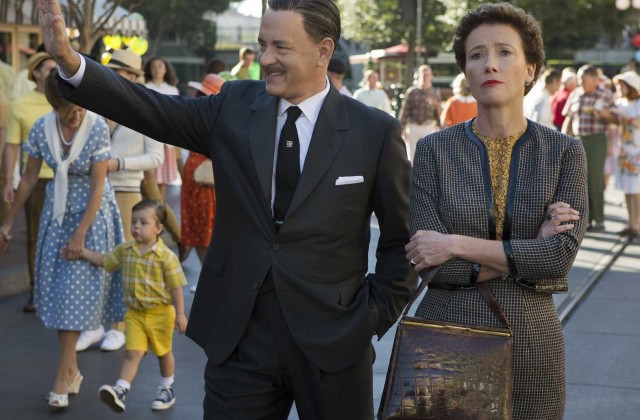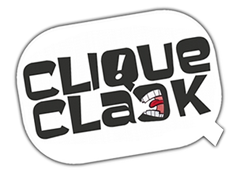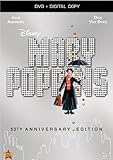Should Saving Mr. Banks be more historically accurate?

‘Saving Mr. Banks’ weaves the wonderful tale about how Walt Disney saved ‘Mary Poppins’ and author PL Travers for the big screen. But how much of ‘Banks’ is fiction?
Disney fans must have been looking forward to a flick like Saving Mr. Banks for years. Mary Poppins is an American classic, a film that transcends age and demographics (Wait … it was originally written by an Australian living in London? … Oops). Despite that, it is still a wonderful opportunity to get a feel for what Walt was really like (Huh? The Disney-fied Disney isn’t an accurate portrayal of the actually ruthless businessman? Oh). But hey, at least the beautiful story of how author P.L. Travers was eventually won over by Walt and the writing team of Richard and Robert Sherman with the whimsy of all things Disney was historically accurate, right?
Apparently not nearly as much as director John Lee Hancock and writers Kelly Marcel and Sue Smith would have us believe.
Taken out of its historical context, Saving Mr. Banks is delightful film. Tom Hanks plays the idealized Walt Disney that we would all like to believe created the most magical place on earth. Emma Thompson is superb as the prickly Travers. Honestly everyone was great, really, from Bradley Whitford (a personal favorite of mine) to Annie Rose Buckley, who plays Travers as a child in Australia. Paul Giamatti also stood out as Travers’ chauffer Ralph.Saving Mr. Banks raises a larger question: how accurate is a film like this obligated to be? There is quite a bit of truth found in the story; I particularly loved the mid-credits sequence that included one of the actual recordings from the sessions the brothers Sherman, Travers and director Don DaGradi. But is some accuracy enough? Hanks’ Disney might match up to the man seen palling around with Mickey on The Wonderful World of Disney, but that version doesn’t necessarily match up with what we have learned about Walt behind-the-scenes.
And the real history of the making of Mary Poppins apparently differs greatly from what Banks’ portrays. Sure, Travers was difficult, but team Disney winning her over with a spoonful of sugar just simply isn’t what happened. A great deal of Banks is told in flashback, contrasting Travers’ childhood and experience with her father (a surprisingly solid turn by Colin Farrell) and how much of Mary Poppins was inspired by that experience. But how much of that is true? What are we supposed to believe? When you mix the truth as much in the A-story, it is difficult to trust the B-story.
As I mentioned previously, Saving Mr. Banks was a pretty good flick. It is a wonderful – if a little saccharin – story, filled with great performances. But there will be people who’ve not picked up a book (or know the backstory somehow) and believe this is how it really went down – who knows what people might believe 50 years from now. Which brings me back to the question: does Saving Mr. Banks and movies of the same ilk (think Braveheart) have an obligation to tell their history right. You’ve got to imagine Disney (the company) wants to share the best parts of its history, but I’d much prefer the non-whitewashed (Disney-fied) version.
 CliqueClack
CliqueClack



Unfortunately, since Disney was at the helm of this project, I expected it to be 40% truth, 60% bullshit. Still an enjoyable film, probably thanks to the actors and their chemistry. The ending even had me in tears.
The amount of accuracy “required” in a film varies depending on what type of film is being made. I don’t think this film was ever touted to be a historically accurate depiction of entirely true events, but rather a dramatization of the making of a beloved film. The point of this film is to entertain, not educate. And I think they achieved that goal splendidly.
In reality, she was not pleased with the results – especially the animation, and was told by Walt – “That ship has sailed!” Of course, she never gave the rights to any of her other books to Disney.